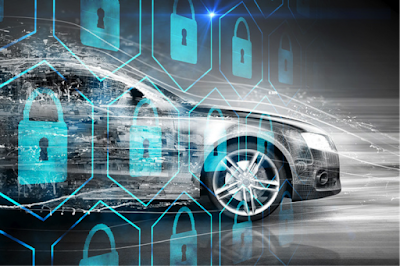The automotive industry is "driving" towards autonomous cars. The concept of autonomous cars are helpful in several ways - enhances road safety, provides navigation, reduces the losses caused by wear and tear, provides transport for every individual and the list goes on. But, what does an autonomous car run upon, other than mechanics? The very next answer is a combination of Electronic Control Units (ECUs) and millions of LoC (Lines of Code). So, what is the degree of security that autonomous cars provide?
Long back in 2014, when the concept of autonomous car was emerging, two American hackers Charlie Miller and Chris Valasek threw a challenge upon the security of autonomous cars. These 'security researchers' were able to take control over an autonomous car. They didn't use rocket science and complex equations to achieve this; but just with a laptop, they were able to override the control system of the car. The good thing is their test was successful and the better is that they just 'tested' the security of the car.
The context was long back, when Internet of Things (IoT) has not come into picture. For time being, let us objectify IoT as just a module added to autonomous car for omnipotent data access and control. The module of IoT is another set of millions of LoC. According to the principle of coding, the more the LoC, the more the application is vulnerable. Today, every autonomous car is targeting to integrate the IoT connectivity to develop the concepts like connected cars and Vehicle to everything (V2X) connectivity. Under such conditions, the LoC increases enormously, which finally imparts unexpected vulnerabilities.
Read more: Cellular Vehicle-to-Everything (CV2X).
In the recent panel NXP FTF Connects Silicon Valley, Hadi Nahari, Security professional and CEO of Cognomotiv has expressed his view about the security in autonomous cars. Another member of the panel Lars Reger, CTO of NXP's Automotive and Jeff Stewart from Auto-ISAC have opined about the security with respect to the sophisticated emerging technologies.
| Panel at the NXP FTF Connects Silicon Valley |
Bundles of code turn vehicles into software platforms, and the autonomous industry is figuring out how to deal with it. - Hadi Nahari
The more things are connected, the better they need to be protected. A car could be compared to a house. It has several doors and locks, located at various places inside the house. Locks in the autonomous industry consist of hardware and software solutions located at various places in the vehicle network to protect each component (e.g. ECU) from malware and unauthorized access. - Lars Reger
Due to the raising sophistication of technology, the issue of security is becoming ever more complex and more difficult. - Jeff Stewart
Verdict of security in Autonomous cars:
For any system, both the hardware and software plays equal role in the operation of the system; autonomous car is not an exception. So, not just the software or hardware but it is also about the information about the vulnerabilities in different systems of the industry.
The verdict of the panel about the security for autonomous cars is that proper design and proper techniques that are thoroughly tested could help achieving better security levels. Also, the automotive industry needs more information security researchers for providing tough autonomous cars and connected bodies.
Read more: Automotive Grade Linux for automobiles.











0 comments:
Post a Comment